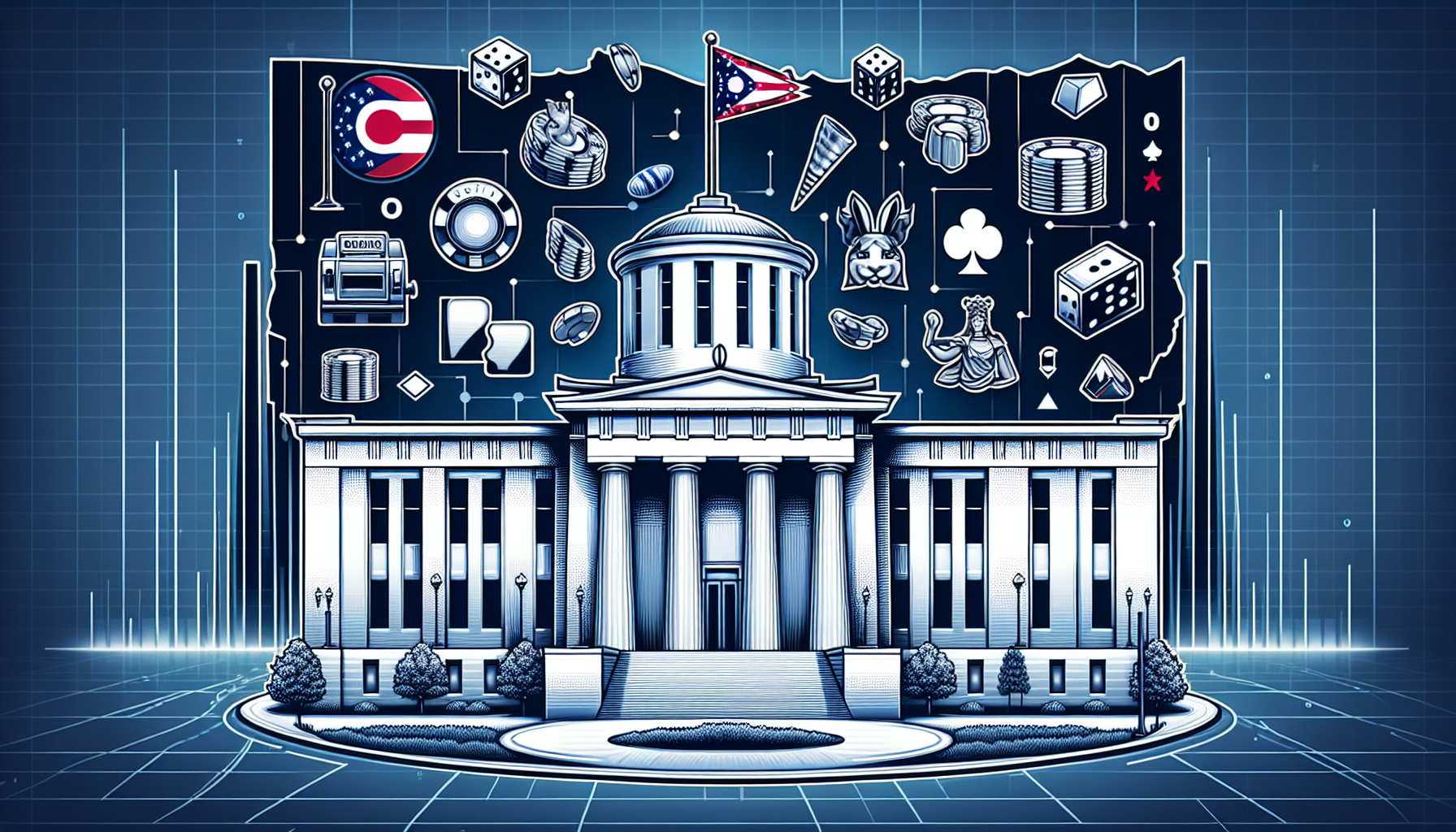Ohio is on the brink of a significant legislative change as it prepares to consider a new piece of legislation concerning online casinos. As discussions gain momentum, industry stakeholders, potential investors, and residents are waiting with bated breath to understand how this might reshape the landscape of both the local economy and the leisure sector. The incoming bill, poised for its inaugural hearing in November, may signal a new chapter for digital gambling in Ohio.
The Emergence of Online Casinos in Ohio
As technology continues to evolve, so do industries like gambling, pushing them into more digital domains. Ohio, a state already familiar with gambling through its land-based casinos and racinos, sees the potential to transition into the digital arena. The Ohio Casino Control Commission will likely oversee regulatory measures if the bill passes, ensuring a structured and safe implementation similar to other states actively pursuing online gambling.
Not only would this legislative move align Ohio with states like New Jersey and Pennsylvania, where online gambling is thriving, but it also addresses the growing consumer demand for accessible gambling options. The fusion of leisure and technology stands as a significant driver for this legislative move, enabling Ohio to tap into the burgeoning econosphere surrounding digital gambling.
What the Proposed Bill Entails
The proposed bill aims to legalize and regulate online casinoplaying within the state. It seeks to create robust frameworks for licensing, taxation, and operating standards that establishments must meet to qualify. Expected key provisions include:
- Licensing procedures for online casino operators to ensure safe and reliable platforms for users.
- A taxation structure aimed at contributing to state revenue without stifling business growth.
- Responsible gaming measures to prevent addiction and protect vulnerable populations.
This legislation is anticipated to provide a new revenue stream for Ohio, channeling funds towards essential state services such as education and infrastructure, thus benefiting the broader community.
The Economic Impact and Potential Gains
Furthermore, the economic implications of passing this online casino bill cannot be overstated. According to a study by the American Gaming Association, states with legalized online gambling have witnessed substantial tax benefits and job creation. Ohio, being a populous state, stands to gain these advantages by expanding its existing gambling framework to include online platforms.
The online casino industry has been a billion-dollar sector in neighboring states. Ohio’s entry into this market could foster new businesses, attract technological investment, and stimulate associated sectors, such as cybersecurity and digital marketing. It would also entice talent across the tech and gaming industries, positioning Ohio as a vibrant, diverse economic hub.
Challenges and Considerations
However, this transition isn’t without hurdles. One primary concern involves responsible gambling practices. Ensuring that the digital sphere upholds the same standards as physical casinos is pivotal. Lawmakers must strike a balance between encouraging economic growth and maintaining stringent controls to adequately protect users, particularly minors and at-risk groups.
Moreover, as Ohio contemplates this legislative action, it looks at states like New Jersey, which was among the pioneers in legalizing online casinos. New Jersey’s model demonstrates the importance of updating technology infrastructure and integrative regulatory bodies to oversee online operations. Ohio may have to adopt such models while tailoring them to fit its unique demographics and economic landscape. For further insights on how New Jersey managed its online gambling scene, one can explore comprehensive analyses available through reliable sources such as New Jersey Division of Gaming Enforcement.
Public Perspective and Stakeholder Views
Public opinion in Ohio has been a mix of enthusiasm and caution. Many residents see online casino legalization as an opportunity for increased entertainment, but there exists a cautious segment concerned about the social impacts. Stakeholders from the existing casino sectors show support, anticipating that an online vertical would complement and not cannibalize current operations.
To fully gauge public sentiment, hearings and surveys could be utilized, offering a comprehensive understanding of constituents’ views and their expectations from this legislative move.
The Path Forward
As Ohio lawmakers gear up for the first hearing of the online casino bill, the pathway appears promising but demands a strategic approach. Emphasizing transparency, effectiveness, and adaptability will be critical for success. The legislation is expected to undergo rigorous reviews and adjustments based on feedback from diverse stakeholders, including community representatives, industry experts, and tech innovators.
Optimism surrounds Ohio’s potential to inject new life into its economy and modernize its gambling offerings. By learning from other states that have successfully implemented similar measures, Ohio can potentially exceed expectations, serving as a model for others contemplating entry into the digital gambling arena.
For readers interested in the evolution of gambling laws and their implications, visiting authoritative resources like the American Gaming Association provides extensive insights on national trends and historical data.
In conclusion, the upcoming legislative hearing represents more than just a political milestone. It signifies Ohio’s forward-thinking approach to economic development and its commitment to aligning with modern digital transformations. By fostering an inclusive dialogue and ensuring rigorous safety measures, Ohio stands ready to embrace the future of online gaming with careful preparation and a vision for prosperity.

